|
Welcome Thilde! Thanks for taking some time to chat about writing. First, a few quick-fire questions: Dragons or Griffins? Super spicy or super sweet? And if you were to take an all-expenses paid one week vacation to any of the Nine Realms of Norse mythology, where would you go? Dragons! Super spicy! And uhh… Vanaheim! Since it’s the home of the fertility gods, I think a trip to Vanaheim would include some amazing (maybe even spicy?) foods. Perfect for a relaxing trip. Though you’ve lived all over the world, you originally come from Denmark. My family is from Norway and I have loved visiting, especially when visits involve hikes in the fjords. However, I think that Scandinavian countries (Norway, Sweden, and Denmark in particular) have an inflated international reputation as a kind of ultimate ‘utopia’. Tell us one thing about living in Denmark that isn’t so great that most people might not know about. You’ve probably heard about it from science fiction stories, but a utopian society will inevitably create a lot of rules and laws for the greater good in order to maintain its utopia. Denmark is no different in this regard. Imagine this: it’s a cold windy night and you’re walking home. It’s hailing, windy and there’s not a single car or bike on the road. You’re still going to wait a minute on the sidewalk for the pedestrian sign to turn green. If you get the sudden urge to pay a visit to your Danish friend, then you better call to make an appointment. Don’t you dare just “step by”. Us Danes need time to prepare for the straining social interaction of saying “Hello, how do you do?”. Now you want to buy a car? Hmm… That consumes a lot of fuel, and that’s bad for the environment… Tell you what, if you pay 200% of the car price in taxes we will let it slide… for now. "...a utopian society will inevitably create a lot of rules and laws for the greater good in order to maintain its utopia. Denmark is no different in this regard." While the base principle of protecting everyone with laws and unspoken rules is inherently good, there are many of both in a Utopia like Denmark. Taxes, special duties plus VAT are very high but that’s the price of a utopia. If the government says jump, we jump. I think that’s something that people rarely talk about on the international scale, but as I see it, this is both the reason that Denmark works as a utopia and the reason it’s tough to replicate. You can’t pick and choose. It’s all or nothing. You’ve written several books and so you know what it takes to bring a story from conception to completion. What advice would you give to new authors who are working on their first book and are feeling ‘stuck’ somewhere in the middle? Yes, while only Northern Wrath has been published at the time of this interview, I’ve already written books 2 and 3 in the series and am working on a new series, so I have been down this road before. Often my productivity slows down in the middle of a book, because the excitement I started with has kind of dissolved and the ending seems so very far away. When this is the problem, there is really only one solution that I have found. Writing a little every day until you can see the light at the end of the tunnel. It’s easier to write when it becomes a habit, so keep at it, you’re on the right path! That being said, when I do have good writing habits and then get stuck, it’s usually because I’m on the wrong path. I’ve written myself into a corner and I’m not headed in the right direction anymore. "Often my productivity slows down in the middle of a book, because the excitement I started with has kind of dissolved and the ending seems so very far away." What’s needed in those situations is a reassessment of what I’ve written. I go back to when the text was last working for me, and try to figure out what needs to change going forward for it to continue to work. Once I’ve found the issue, I rewrite the concerned section. Sometimes I catch the potential issue early enough that it can be fixed by simply adapting my plans for future chapters instead. Usually though, some immediate rewriting is needed. To new authors I would say the following. As you write through the tough middle of a book remember the fundamental rule: if the writer is bored, the reader will be bored. When you sit in the middle and are not as energetic as when you started, find something in the story that you find exciting to drive you along. If the writer is having fun, chances are that the reader will too. "To new authors I would say the following. As you write through the tough middle of a book remember the fundamental rule: if the writer is bored, the reader will be bored." Our paths toward Viking fiction seemed to have traced a similar arc in terms of falling down the rabbit-hole of our heritage. In what ways has writing Viking-themed fiction shaped your own personal identity as a Dane and as a citizen of the world? I was born and raised in Denmark, but when I was 10 years old, I moved to France with my family. In France, I quickly fit in, learned the language and made a life for myself, and the longer I lived there and the more I travelled and found other places where I could belong, the more I wondered what my connection to Denmark truly was on a cultural level. Looking into the Vikings gave me an answer. It gave me a connection to Denmark that I previously did not have, even when I lived there as a kid. "Looking into the Vikings gave me an answer. It gave me a connection to Denmark that I previously did not have, even when I lived there as a kid." When my family moved away from Denmark, we took a piece of the Norse culture with us. Not the utopian values described above, but some core cultural traits. There was a focus on the family, a lust for exploration, and hospitality was a prime value that I was taught in the home. These were the main traits we exported from the Norse culture and when I began to research the Vikings, I found all of those same values reflected in the ancient Norse culture (primarily evidenced in the Havamal). Finally, I could explain those pieces of my own hybrid-culture. At last, I could define who I was, and I was that way. Before, the hardest question I knew was: “where are you from?” because it felt like I was not from anywhere. I was not from Denmark and I was not from France, so I could never provide an answer that was satisfying, at least to myself. Now, thanks to the Vikings, I can answer the question more easily, because I am from all of these places. Today I may answer that I am from Denmark. Yesterday I might have said France. Tomorrow I may mention my time in England or my time in South Korea. I have taken a piece of all of these places with me. I am not from any one of them, I am from all of them. Northern Wrath, the first book in your Hanged God trilogy, was released in October, 2020. Walk us through your experience of the launch day and the weeks following: What were the highlights? Any surprises? And what advice would you have for authors with an upcoming debut launch?
My fear about a launch was that it might feel anticlimactic. So, a big surprise to me was that things started happening way before the launch date. ARCs (Advance Reader Copies) came out in June and reviews started to trickle in shortly after that. From June until October, I felt like there was a little something happening every day. Might be someone posting a photo of their ARC, someone posting an early review, or an interview request. A little something almost every day. That meant that launch day was not so much a sudden burst of celebrations soon to be forgotten, but more of a natural conclusion to the building excitement. For authors preparing for their first launch, I would hence say: there are a lot of small things you can do before the launch that will get people excited about your book and get them to pre-order it, and take part. Talk about your book, online or in person, and get some excitement going gradually instead of relying purely on the launch itself. That way you extend the celebrations. It certainly made it a great experience for me. "For authors preparing for their first launch, I would hence say: there are a lot of small things you can do before the launch that will get people excited about your book and get them to pre-order it, and take part." One of the historical themes in Northern Wrath is the erasure of ancient Viking customs as Europe embraced Christianity. What parts of this culture did you really want to highlight through the narrative and what lessons have Vikings from the past taught you about living today? At the forefront of my narrative is the idea that culture dictates everything else. The Vikings acted as they did because of their belief-system, which dictated their culture. If you truly believe that in order to get to the cool afterlife, where the awesome gods feast, you first have to die an honourable death in battle… Well then you have to go out and get into some fights to find those battles. Otherwise there’s absolutely no chance of you ending up in that awesome hall in the afterlife. So, you need to go out and find some epic battles, and if you live on a land surrounded by the sea, then you need some good ships that can both carry you far over tricky waters, and will also double as quick escape vessels. As such the infamous longships appear, and people make their life around these ships. There are, of course, the hopeful warriors who search for a worthy battle, but there are also the ship-makers, the wood-workers, and the weavers who suddenly have plenty of work. A whole community and way of life forms around the simple quest of needing to find a worthy battle. "At the forefront of my narrative is the idea that culture dictates everything else. The Vikings acted as they did because of their belief-system, which dictated their culture." It is no mere coincidence that there was a desperation in other countries to turn the Scandinavians towards Christianity, for their belief is what fueled their way of life. When they eventually did turn to Christianity, that way of life slowly lost meaning and purpose, until it was no longer sustainable. Belief being essential to someone’s culture was an interesting concept to me, and it is really around this idea that I built Northern Wrath. As to lessons from the past, I have learned many things. Most of all I learned a lot from spending my summers sailing with a Viking warship, and I feel like I’m still learning from those continuing experiences. Chief among them is the realisation that while individual quests can be grand, a journey has more meaning when there are others aboard. You can’t sail a warship alone, and even if you did manage it, you would not survive the battle at the other end. Your next series is a fantasy adventure set in ancient Korea, a country in which you have lived and have a deep fascination with. How has the process of historical research been for this new novel compared to your first series as you explore territory across cultural lines and over language barriers? Yes, the Hanged God series has been written, and so while book two and three get ready for publication I’m writing my next series, set in 7th century Korea. Writing historical based fiction has two distinct requirements. The writer evidently needs to do research into the historical era, but they also need to know how to interpret the discoveries they make to modern day audiences. Personally, I have encountered two main challenges in my historical research into Korea. The first was a lack of accessibility to primary sources. Most of the material I base my research on for this up-coming series is only available in Korean, but since I both speak and read Korean, there was no significant language barrier for me. Except on the occasions that involved texts written in Hanja with no transcriptions into modern day Korean script. Language was not the issue, but there has been much less research done into this era of Korean history compared to the Viking Age in Scandinavia. A lot of what has been done I was only able to access while being in Korea. Thankfully, in 2019, before the world shut down, I was able to take research trips across Korea. I visited all of the important sites, visited museums, and located elusive texts at distant libraries. I was also able to learn traditional Korean archery, which became integral to the story. I learned a lot during that time, and without that trip I would not be able to write this story. Writing from half-way across the world, I would not be able to acquire about 70% of the knowledge I gained during that time. "I visited all of the important sites, visited museums, and located elusive texts at distant libraries. I was also able to learn traditional Korean archery, which became integral to the story." The second issue I encountered is a little more complex. Let me explain… When I was doing research into the Vikings, I started with the same knowledge base as most Danes and Scandinavians. There were certain things about the Vikings that I knew, and other things I thought I knew that were completely wrong. This meant that I had a really good grasp on what most people in modern day Scandinavia knew about the historical period I was writing about and I also knew what misconceptions I had to fight in the text. With the Korean story though, I did not start with the same knowledge base as most Koreans. Finding out what kind of basic knowledge most Koreans have about the period presented a challenge for me. Every time I asked, I received wildly different answers. To solve this issue, I ended up having to look into the base history curriculum taught in Korean schools and comb through history books made for school kids. "Finding out what kind of basic knowledge most Koreans have about the period presented a challenge for me. Every time I asked, I received wildly different answers... I ended up having to look into the base history curriculum taught in Korean schools and comb through history books made for school kids." Last, but not least, where can readers buy a copy of Northern Wrath and where should they go to keep track of your upcoming publications? Northern Wrath can be found or ordered at any bookshop. Links to buy can be found on my website. News about upcoming projects can also be found on the site. Otherwise, I check Twitter whenever I’m summoned, and happily engage there. So, if you want to interact that is where I can be found.
0 Comments
Welcome Desi! Thanks for taking some time to chat about writing. First, a few quick-fire questions: Sweet or Spicy? Skiing or swimming? And if you could jump 1000 years into the future or into the past for a day then which would you choose and why? I most definitely prefer spicy. My dad used to pay my brothers and I a dollar for every hot pepper we could eat whole. As far as skiing is concerned, I’ve never gone. It’s on my bucket list, but I do love to swim. I have an affinity for the water. And, the last question is an overly-zealous huzzah for the past. I’m a historical fantasy nerd, and damn proud of it. "I’m a historical fantasy nerd, and damn proud of it." What is your creative process like? Is it explosive and exploratory? Is it carefully calculated and scheduled? Do you stick to a writing schedule or do you write around other commitments in your life? With three kids and a mountain of never-ending laundry, I have to write around my other commitments, but since my creative process verges on obsessive, I will forego sleep to get it done. I live inside my head, planning and plotting scenes there until I’m ready to put the notes to paper. I’ll often start by researching an era and all of the culture that goes with it. Once the ideas start sparking, it usually takes off like a wildfire. I can’t type fast enough. That’s when the obsessiveness kicks into overdrive to plot characters, arcs, and then scenes. It’s both wild and calculated. "Once the ideas start sparking, it usually takes off like a wildfire. I can’t type fast enough... It’s both wild and calculated." Besides writing novels you have also written and directed plays for live-stage theater. In what ways has your work in theater changed your perspective as a writer and how this influences your writing? No matter the project, the end goal is the same for me: I want both an audience or a reader to walk through the production or story like it’s their own. I want them to feel something that doesn’t let them go for a while. Regardless of the medium, the satisfaction of tears streaming down an audience member’s face or a review from a reader who wants the next story is something I almost can’t describe. "No matter the project, the end goal is the same for me: I want both an audience or a reader to walk through the production or story like it’s their own." One of my favourite writers is Mary Robinette-Kowal who co-hosts the podcast Writing Excuses alongside the celebrated fantasy author Brandon Sanderson. Her insights on the podcast have really opened my eyes to many of the gender-biases in Sci-Fi and Fantasy that I was blind to before. Are there any glaring biases that you think need to be addressed in the genre right now? Considering that history has predominantly been written and recorded by caucasian men, I find it exhilarating to recover lost stories of women and minorities who were anything but submissive and in the background. They are heroes. They are leaders. They are pillars of history. And, their stories deserve to be told. Your upcoming book Bindle Pink Bruja is a story featuring elements of Mexican folklore involving a jazz club owner in the age of Prohibition. Honestly, I have a hard time imagining a setting more vivid than that for a historical novel infused with magic. How did the setting and the characters evolve in your mind? Did any particular historical figure or folktale inspire the story? So as not to give too much away, I will merely tell you that the story was inspired by two things: an old tale involving magic dirt, and my own family’s journey to and within Kansas City’s Hispanic communities in the early 1900s. One of the characters, an old abuela, is fashioned after my own great grandmother while the MC is a mirror of myself. The book also includes a few cameos of Al Capone and an infamously crooked councilman from Kansas City, Tom Pendergast. Through the online writing community, particularly accounts like Folklore Thursday (@FolkloreThurs) on Twitter, I have learned about so many interesting characters, creatures, and tales from folk culture all around the world. If someone were to dive into the world of Mexican folklore which story or book would you suggest they start with? Take a walk through Mexican Gothic, Gods of Jade and Shadow, and The Beautiful Ones if you’re looking for fictional novels. But, there are so many books out there that have everything from ancient Latin American folklore to scary stories, and common Hispanic folktales, it’s hard for me to choose just one. You also work as a managing editor for EveryWriter. As new writers try to break into the literary scene it is important that they query agents with well-polished manuscripts. However, staring at long documents for hours on end can give writers ‘snow blindness’ to their own mistakes. Do you have any sage tips for error-catching while proofreading? I do a couple of things during editing before querying. Actually, I do all of this editing before even giving my work over to beta readers. First, I’ll do a content edit for each scene, making sure they meet their goal in contributing to the story, and cut out unnecessary or clunky prose. Then, I’ll run the scene through Grammarly to find line edits I may have missed. Lastly, I’ll wait a couple of weeks to let my mind rest, and then do a read-aloud edit. Reading your work out loud makes a world of difference. "Reading your work out loud makes a world of difference." Where can readers keep track of your latest writing and stay up to date on the publication of Bindle Pink Bruja? Look out for the release of Bindle Pink Bruja in 2022 from Harper Voyager!
Welcome Hannah! Thanks for taking some time to chat about writing. First, a few quick-fire questions: Tea or coffee? Oceans or Mountains? And if you could choose any forest creature to have as a tame pet then which would it be? Hey Joshua, thanks so much for having me. Coffee! Mountains! Preferably coffee on top of mountains. As to taming forest creatures, after much deliberation I’ve got to say… a moose. Majestic, unorthodox, and unexpectedly deadly! "...after much deliberation I’ve got to say… a moose. Majestic, unorthodox, and unexpectedly deadly!" You and I are both Canadian authors, a bit of a rarity on the global writing scene. How did being a Canadian influence or impact your path toward publication? Do you have any bits of wisdom to share with unpublished Canadian writers who are currently querying? First of all, I’m so glad we connected! Because you’re totally right, being a Canadian author is a bit of a rarity. That’s likely the biggest impact being Canadian has had on my journey; I had to go it alone for a while before I found friends online who wrote similar things. That sounds a bit sad though. On the flip side, I love how cozy the Canadian author world is! I’d encourage Canadian writers to get established in the online writing communities on Instagram and Twitter. It’s difficult to establish relationships with other writers in real life in a land of big distances and small towns, but they’re crucial! Fantasy, Historical Fiction, and Science Fiction are genres that are very distinct in my mind but are often grouped together by readers and reviewers. As a writer of all three, what key elements make these genres unique for you? Would you categorize them separately or as three strands of the same branch of fiction? I think I have to put myself somewhere in between. They’re separate, as in fantasy is magical and stretches beyond the confines of our daily experiences, sci-fi leans heavily on tech and is probably in space or the future, and historical fiction is set within the confines of the past. But the genres certainly harken to one another, at least in the way that I write and interact with them! So much of fantasy is rooted in history, in the cultures and customs and impressions of former days. So much of sci-fi requires imagining the fantastical, things beyond the world in which we now inhabit. And I, for one, very much appreciate a historical fiction with subtle elements of the mysterious and glimpses of a world which, again, is beyond my own daily existence. The setting of your upcoming debut, Hall of Smoke, is inspired by the Canadian wilderness and the ever-scenic European Alps. I love this common connection in that my trilogy is set in a wilderness blended from my time spent hiking the Canadian Rockies and memorable trip to the fjords of Norway. How did you handle blending the real and the mythic elements of nature in your trilogy? What is your approach to the natural environment while world-building and how did this come through in Hall of Smoke? I love that you’ve blended the Rockies with Norway! When I look back at writing Hall of Smoke, I made very few conscious choices about the setting of the book. I’m very much a discovery writer, and I’ll admit that I do little to no worldbuilding ahead of time. Almost every aspect of the HOS world emerged in scene as I wrote and looked through the character’s eyes, though occasionally I chose to reference my own experiences and harvest them for senses, and that’s where the distinct flavours of my childhood in the bush and my time in the Alps started to come forward. I wrote what felt natural, a place I wanted to experience, and it came together as a new world! "Almost every aspect of the HOS world emerged in scene as I wrote and looked through the character’s eyes..." Though Viking culture is often depicted as very masculine and patriarchal, I love to remind people that in the Norse myths only half of the warriors that die in battle go to Odin’s feasting hall of Valhalla - Freya demands and receives the other half as she gathers her own forces for Ragnarok in her hall of Sessrumnir. As the author of a Norse-inspired fantasy with a female protagonist, how did you navigate the often-troubled history of Norse representation in fiction and are there any misconceptions about Viking culture that you’re hoping to challenge in Hall of Smoke? Since Hall of Smoke is more on the inspired side of Viking-inspired side, I can’t say that I directly set out to challenge any misconceptions. But I do love Norse mythology for the complexity and prominence of female figures, and I was weary of Viking books and series with primarily male protagonists, stereo-typically “male” priorities and content. I enjoy those stories too, but I wanted something more balanced. And I wanted a female lead with all the skill, dignity, and complexity of the women in my life, and the women I see between the lines of the history books. "I wanted a female lead with all the skill, dignity, and complexity of the women in my life, and the women I see between the lines of the history books." Some of my favorite Viking-themed fantasy storylines come from the world of video games. I know that you and I both share a love of Skyrim in particular! What role do you see video games playing in the arena of fantasy and science fiction story-telling, especially as a writer of fantasy in a more traditional sense? I do love Skyrim! I think video games are a fascinating and undervalued arm of the SFF community. They combine so many artistic avenues into one form - visual art, music and sound, cinematics, general storytelling, etc - and I think game developers do not get half the respect they deserve. Personally, I find gaming frees up my mind, giving me a chance to break out of the world I’m currently working in and immerse myself completely in something new. They’re both a tool for me and an ultra-addicting hobby! Right now you have an untitled sequel to Hall of Smoke on the docket, as well as an adult space opera and an adult romantic fantasy. Can you give us any sneak previews or hints about these tales or when they might be forthcoming in print? Unfortunately, I can’t say much! But the sequel to Hall of Smoke is slated for release early 2022. It’s a stand-alone set in the same world, roughly a decade after the events of book one, and will feature some familiar faces. The romantic fantasy is a bit of a passion project, something I’m keeping relatively quiet to free myself up for creativity. The space opera - I have a feeling this one will be big, in the sense of it may take me a few years to get it right. But I’m so excited to explore that world more! I also have a Gaslamp trilogy floating out in the ether that I’d love to see in print in the next few years. Last, but certainly not least, where can readers purchase Hall of Smoke and keep track of your upcoming publications? Hall of Smoke is available wherever books are sold, in paperback, ebook and audiobook formats. All the latest news is available on my main platform, Instagram, as well as my website. Thanks so much for this opportunity, Joshua!
|
AuthorJoshua Gillingham is an author, editor, and game designer from Vancouver Island, Canada. Archives
April 2022
Categories
All
|

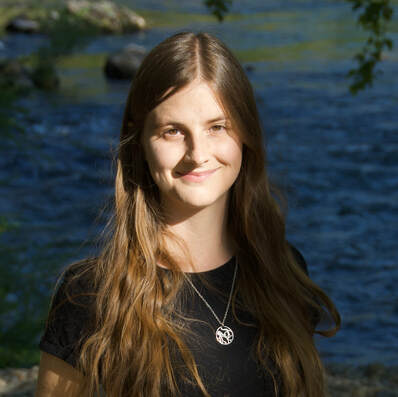
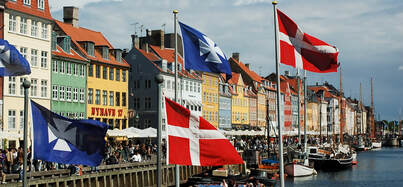
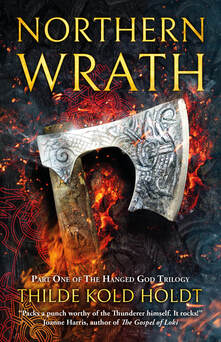
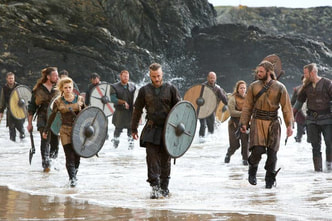
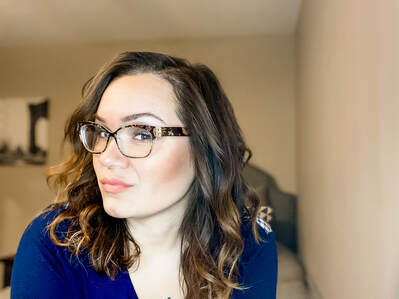
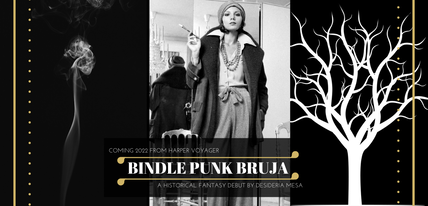
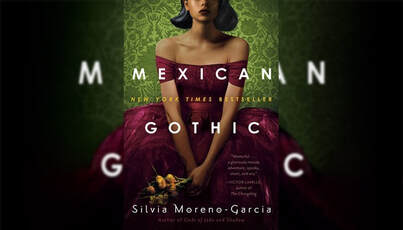
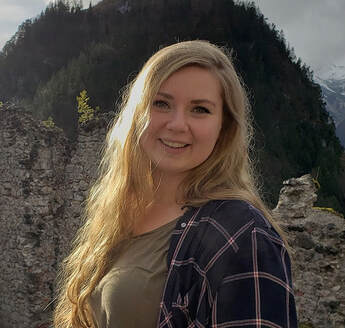
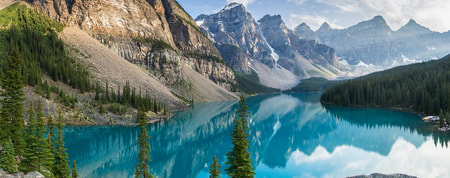
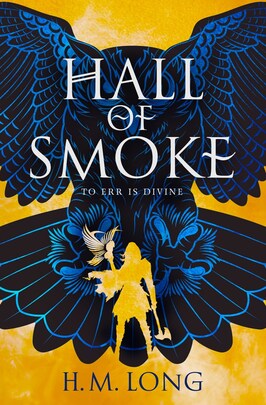
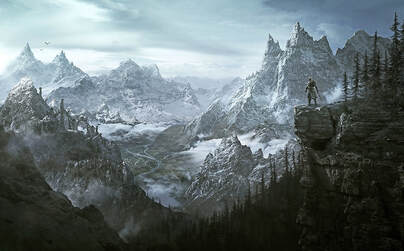
 RSS Feed
RSS Feed
